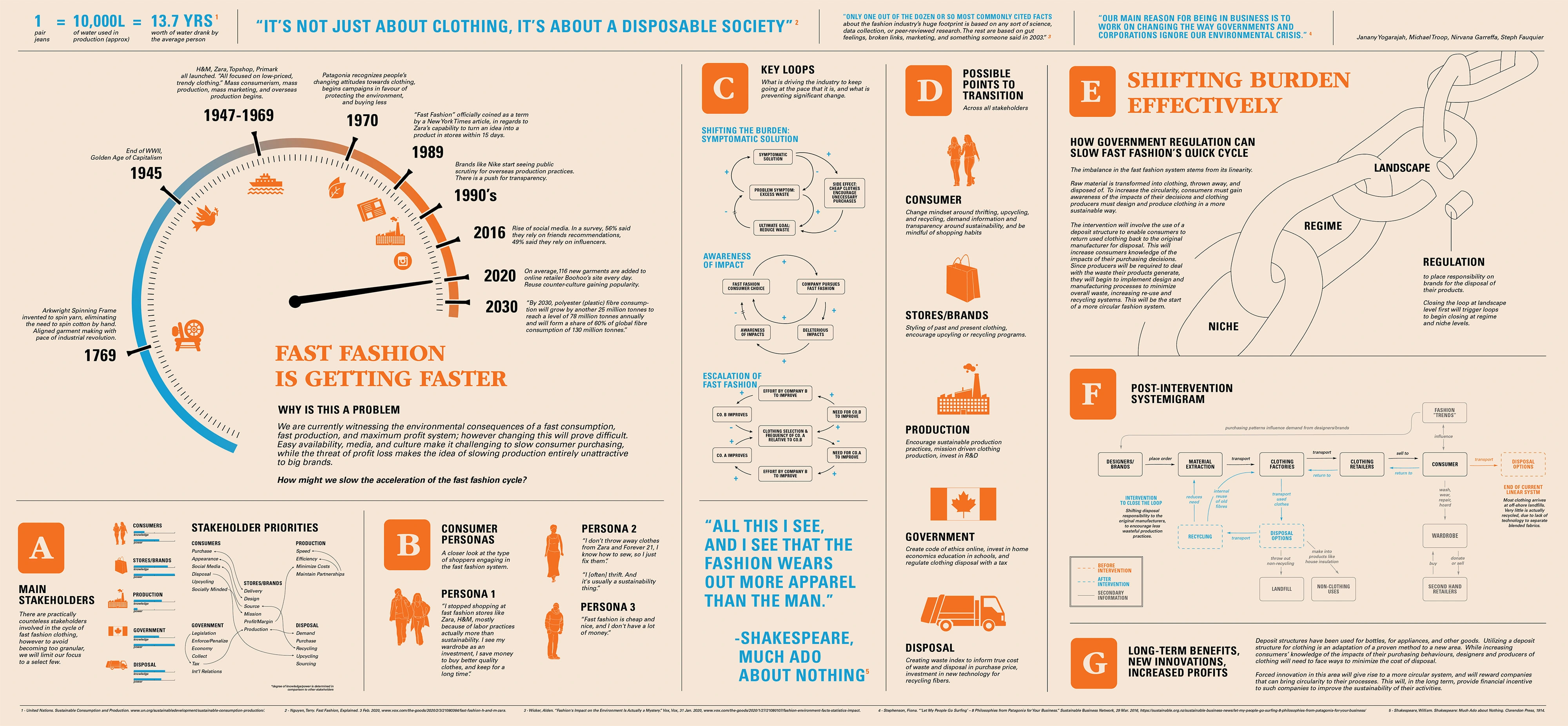Shifting the Burden of Fast Fashion

Fast fashion relies on international systems of production, and poses a very complex problem, with severe environmental impacts. As previously concerning fast fashion giants like H&M and Zara have been surpassed almost exponentially by the online retailer, Shein, the environmental damages have become even more alarming.
As it stands now, fast fashion production is incredibly hard to regulate, because a single garment has to travel between numerous countries for production; for material sourcing, construction, dying, and eventually shipping to stores around the world. And each of these countries has their own set of regulations, or lack of regulations that may benefit fast fashion companies at the expense of the environment.
Little is being done to slow down production, or improve production processes, yet consumers are expected to change their shopping behaviours.
This academic project explored how we might shift the burden of the issue from the consumer, back to the fast fashion retailers.
We found that certain countries like Germany, put the responsibility for disposal of electronics or large appliances onto the brands which produce them. So if you are disposing of a fridge, you can bring it back to the store you bought it from to be recycled. We thought the same should be done for fast fashion.
If you could return your clothes to the store for fast fashion brands to recycle your garments, this would force brands to adapt their production practices to reduce costs of disposal and recycling.
It may even encourage better production practices, because most clothes are produced with a blend of synthetic fabrics that make them impossible to recycle.
If the brand became responsible for recycling them, our hope would be that they may consider using more recycling-friendly materials.
However encouraging consumers to change behaviour and governments to enact new regulation which may compromise business are significant barriers to the implementation of and idea like this.
Like this project
Posted Jan 13, 2023
Shifting the responsibility of clothing disposal to change production and consumption behaviour in the fast fashion system.
Likes
0
Views
21







